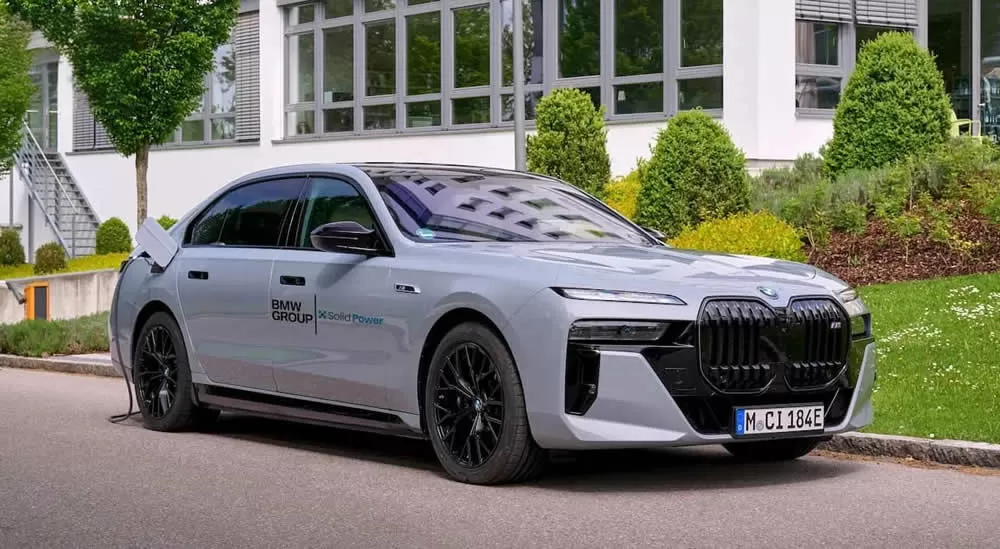
The first batch of BMW electric vehicles equipped with all-solid-state batteries (ASSB) have officially been put on the road for testing, marking an important step for BMW in exploring electric vehicle battery technology. The solid-state battery test vehicle is based on the current i7 modification, using the sulfide electrolyte prismatic battery developed by American solid-state battery company Solid Power, and the battery module has been redesigned to adapt to the existing fifth-generation electric drive platform. The test information of solid-state batteries is as follows:
BMW launched the public road test of the all-solid-state battery prototype (based on the iX platform) in Q1 2025. The actual test data showed:
Cruise range: up to 820 kilometers on a single charge (WLTP standard), 35% higher than the same-level liquid lithium battery models;
Environmental adaptability: the endurance decay is only 12% in an extremely cold environment of -30℃ (traditional batteries generally decay by 30%+)
Energy density: the battery pack energy density exceeds 400Wh/kg, and the volume is reduced by 20%;
Fast charging efficiency: equipped with an 800V super charging pile, it can be charged to 80% in 12 minutes;
Life cycle: the capacity retention rate exceeds 90% after 2,000 simulated charge and discharge cycles in the laboratory.
The first batch of mass-produced models (2026 Neue Klasse) will be equipped with this technology, BMW CEO Zipse confirmed:
2026H1: Dingolfing plant in Germany will be put into production, with an initial production capacity of 100,000 units/year;
Cost target : Achieve less than 100/kWh in 2028 (current liquid lithium battery is about 130/kWh);
This road test marks a key step for solid-state batteries to move from the laboratory to commercialization. Bloomberg New Energy Finance predicts that the global penetration rate of solid-state battery electric vehicles will reach 5% in 2027.